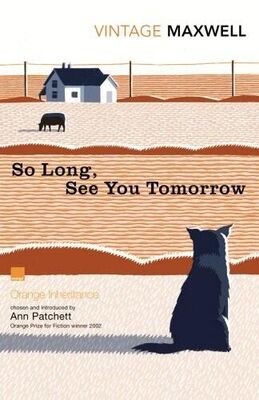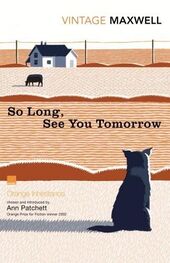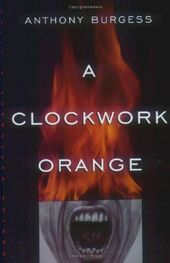Other children could have borne it, have borne it. My older brother did, somehow. / couldn't.
In the Palace at 4 a.m.you walk from one room to the next by going through the walls. You don't need to use the doorways. There is a door, but it is standing open, permanently. If you were to walk through it and didn't like what was on the other side you could turn and come back to the place you started from. What is done can be undone. It is there that I find Cletus Smith.
The little house opposite the fairgrounds looks as if there is nobody there. As if they have gone away on a trip somewhere. Aunt Jenny has pulled the shades to the sill. That way, people won't peer in and see what she sees whenever she closes her eyes, and sometimes when they are wide open. The double bed in the front room is made up and Cletus is lying on it, with his shoes extending over the side so they won't dirty the spread. He is lying on his left side, in the fetal position, as if he is trying to get out of this world by the way he came into it.
The house smells of coffee percolating and then of bacon frying. He does not answer when she tells him breakfast is ready. And neither does he come. Sitting at the kitchen table she blows on her coffee but it is still too hot to drink, so she pours some of it into her saucer… (It is time to let go of all these people and yet I find it difficult. It almost seems that the witness cannot be excused until they are through testifying.)
Aunt Jenny gets up suddenly and goes into the next room and puts her hand on Cletus's forehead. He has no fever but his skin feels clammy and he is very pale. His eyes are open but he doesn't look at her. As she takes her hand away he says, "Would you be afraid if he came here?"
"If who came here?"
He doesn't enlighten her and after a moment she says yes, she would.
"Where do you think he is?"
"I haven't the least iota."
Her hand is not steady enough to drink from the saucer and so she pours the coffee back into the cup and forgets to drink it. The clock ticks louder at some times than at others. She stops hearing it entirely and hears, instead, the sound of her own heavy breathing. Quarter of nine comes and she clears her throat and says, "Time you left for school. You'll be late." He is already late. The clock is five minutes slow, which she knows but has for the moment forgotten. His books are on a chair by the door, but he knows, even if she doesn't, that he can never go to that school again. He walks in the Palace at 4 a.m.In that strange blue light. With his arms outstretched, like an acrobat on the high wire. And with no net to catch him if he falls.
The meeting in the school corridor, a year and a half later, I keep reliving in my mind, as if I were going through a series of reincarnations that end up each time in the same failure. I saw that he recognized me, and there was no use in my hoping that I would seem not to have recognized him, because I could feel the expression of surprise on my face. He didn't speak. I didn't speak. We just kept on walking.
I remember thinking afterward, When enough time has passed he will know that 1 haven't told anybody. . . But I still went on worrying for fear he would think that the reason I didn't speak to him was that I didn't want to know him, after what happened. Which is, I'm afraid, what he did think. What else?
Did he go home and tell his mother? And did they then pack up and move to another part of Chicago to get away from me?
If I'd had the presence of mind to say, "You don't have to worry, I won't tell anybody," would they have been able to stay where they were? Would his mother have trusted a fifteen-year-old boy to keep such a promise, even if I had made it?
Sometimes I almost remember passing him in the school corridors afterward. And I think, though I am not at all sure of this, that I can remember being happy that I was keeping his secret. Which must mean that he was there, that we continued to pass each other in the halls, that he didn't move away. But if he had stayed on at that school, sooner or later we would have been in the same classroom, and I know that we weren't.
Five or ten years have gone by without my thinking of Cletus at all, and then something reminds me of him — of how we played together on the scaffolding of that half-finished house. And suddenly there he is, coming toward me in the corridor of that enormous high school, and I wince at the memory of how I didn't speak to him. And try to put it out of my mind.
One day last winter, plagued by guilt, I brought down from the attic a grocery carton stuffed with old papers, diplomas, newspaper clippings, letters from college friends I haven't seen for thirty or forty years, and so on, and went through it until I found my high-school yearbook. The photographs of the graduating class are arranged in vertical panels, fifteen oval likenesses to a page. Cletus ought to have been between Beulah Grace Smith and Sophie Sopkin and he isn't. If he had been, I would, I think, have been able to put him out of my mind forever. I went through the yearbook carefully from cover to cover looking for him. He isn't in any group picture or on any list of names.
There is a limit, surely, to what one can demand of one's adolescent self. And to go on feeling guilty about something that happened so long ago is hardly reasonable. I do feel guilty, even so. A little. And always will, perhaps, whenever I think about him. But it isn't only my failure that I think about. I also wonder about him, about what happened to him. Whether he was spared the sight of his father's drowned body. Whether after a while he and his mother were able to look at each other without embarrassment. Whether he had as lonely a time as I did when he first moved to Chicago. And whether the series of events that started with the murder of Lloyd Wilson — whether all that finally began to seem less real, more like something he dreamed, so that instead of being stuck there he could go on and by the grace of God lead his own life, undestroyed by what was not his doing.








